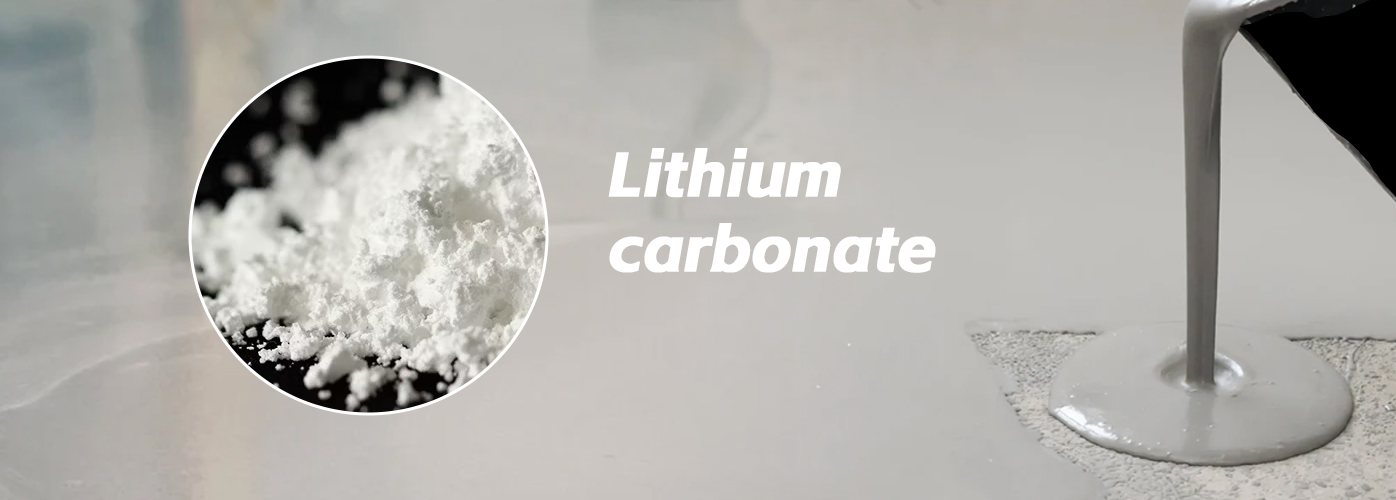
Why is Lithium Carbonate So Popular in Cement-Based Self-Leveling Mortars?
2025-03-18 18:03Cement-based self-leveling mortar is a material widely used for floor leveling in construction, known for its ease of application, excellent fluidity, and high strength. In recent years, lithium carbonate has become increasingly popular as an important additive in cement-based self-leveling mortars. This article explores the mechanisms of lithium carbonate in such mortars and the reasons behind its widespread adoption.
Mechanisms of Lithium Carbonate
1. Accelerating Cement Hydration
Lithium carbonate significantly accelerates the hydration reaction of cement, promoting the formation of early strength. The hydration of cement is a complex process involving reactions of various minerals. By providing lithium ions, lithium carbonate promotes the hydration of tricalcium silicate (C3S) and dicalcium silicate (C2S), generating more calcium silicate hydrate (C-S-H) gel, thereby enhancing the early strength of the mortar.
2. Regulating Setting Time
In self-leveling mortars, controlling the setting time is crucial. Lithium carbonate effectively regulates the setting time of the mortar, ensuring it maintains good fluidity during application while rapidly achieving the required strength after hardening. This regulation improves construction efficiency and reduces waiting time.
3. Improving Fluidity and Workability
The addition of lithium carbonate enhances the fluidity and workability of the mortar, making it easier to apply and level. By optimizing particle distribution and reducing internal friction, lithium carbonate ensures the mortar flows evenly during application, resulting in a smooth surface.
4. Enhancing Durability
Lithium carbonate also improves the durability of the mortar, increasing its crack resistance and impermeability. By promoting hydration and generating more C-S-H gel, lithium carbonate creates a denser mortar structure with reduced porosity, thereby enhancing its impermeability and crack resistance.
Reasons for the Popularity of Lithium Carbonate
1. Improving Construction Efficiency
The addition of lithium carbonate significantly shortens the setting time of the mortar, making the construction process more efficient. Workers can complete large-area floor leveling in a shorter time, reducing waiting periods and improving overall construction efficiency.
2. Enhancing Early Strength
Self-leveling mortars need to achieve sufficient strength quickly after application to allow subsequent construction processes. Lithium carbonate accelerates the hydration reaction, significantly improving the early strength of the mortar and enabling follow-up construction to proceed sooner.
3. Improving Construction Quality
Lithium carbonate enhances the fluidity and workability of the mortar, ensuring a smoother application process and reducing construction defects. The even flow of the mortar results in a more level surface, improving construction quality.
4. Increasing Durability
Lithium carbonate improves the durability of the mortar, providing better crack resistance and impermeability during use. This is particularly important for floor materials that require long-term use, as it extends service life and reduces maintenance costs.
5. Adaptability to Various Environments
Lithium carbonate remains effective even in low-temperature environments, ensuring stable performance under various climatic conditions. Whether in cold winters or humid environments, lithium carbonate guarantees consistent mortar performance.
Conclusion
The application of lithium carbonate in cement-based self-leveling mortars, through accelerating hydration, regulating setting time, improving fluidity, and enhancing durability, significantly boosts construction efficiency and quality. Its popularity stems from its ability to meet the demands of modern construction for efficiency, high quality, and durability. As construction technology continues to advance, the application prospects of lithium carbonate in self-leveling mortars will become even broader.

